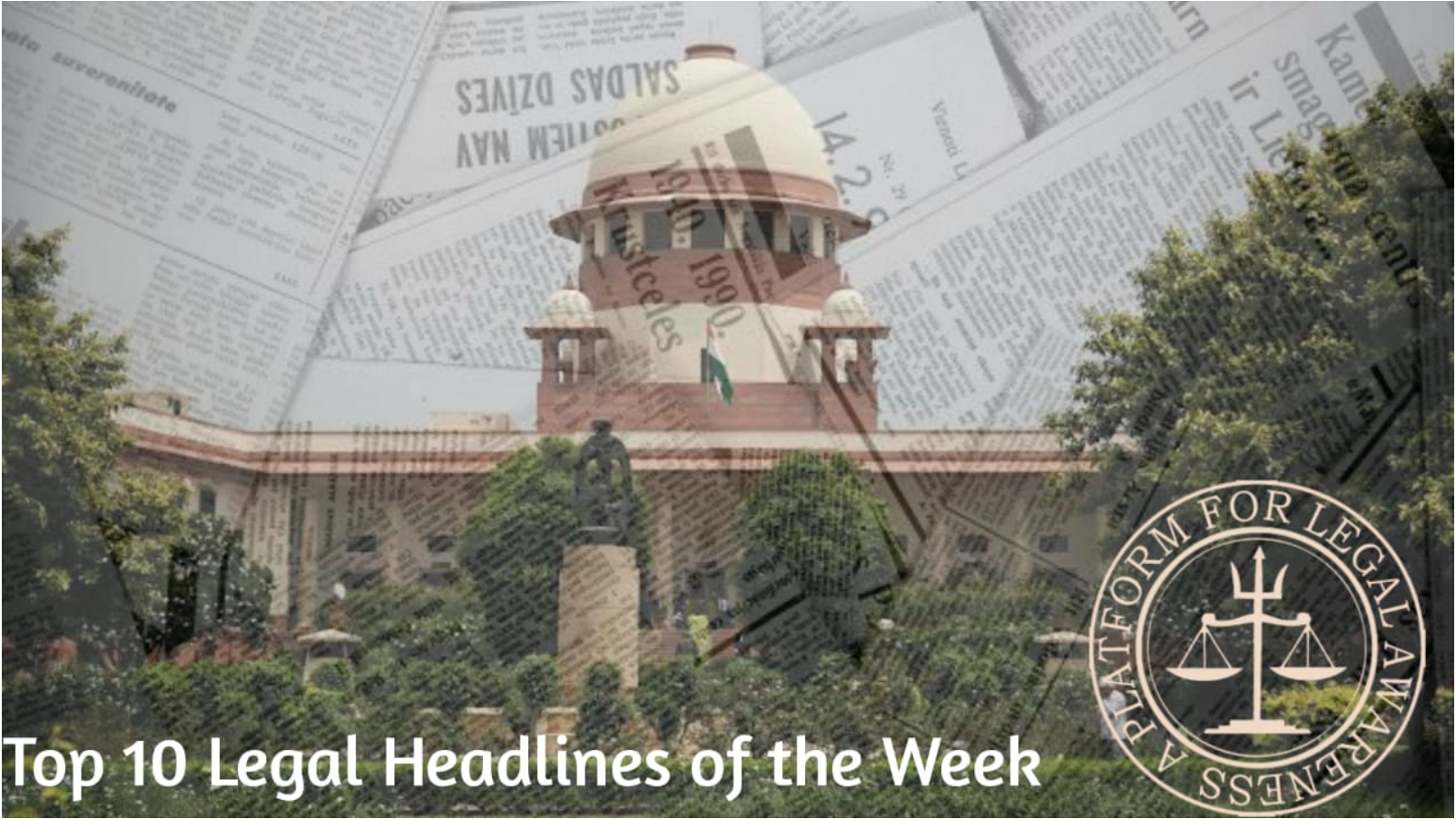1. Supreme Court Stays CBI Probe into Alleged Torture During RG Kar Protests
The Supreme Court has stayed a Calcutta High Court directive for a CBI investigation into claims of custodial torture of two women arrested during protests at RG Kar Medical College. The demonstrations erupted following the rape and murder of a doctor. The women alleged wrongful arrest over accusations of clapping during a protestor’s comments about TMC leader Abhishek Banerjee’s daughter. The High Court had earlier ordered the CBI probe, citing concerns about state police bias. The stay ensures further judicial review of the matter.
2. Supreme Court Declines Article 32 Bail Plea by Gulfisha Fatima, Urges High Court to Expedite Case
The Supreme Court has refused to entertain Gulfisha Fatima's bail plea in the Delhi Riots conspiracy case filed under Article 32 of the Constitution. The Court emphasised that the Delhi High Court should resolve the matter, where her bail plea is pending. It directed the High Court to prioritise the hearing, asking it to avoid unnecessary delays unless extraordinary circumstances arise. Fatima remains a key accused in the 2020 Delhi Riots conspiracy case.
3. Supreme Court Criticizes RWA for Illegally Occupying Historic Lodi-Era Gumti Tomb
The Supreme Court sharply rebuked the Defence Colony Welfare Association (DCWA) for unlawfully occupying the Lodi-era Gumti of Shaikh Ali, a protected monument in Delhi. The Court also criticised the Archaeological Survey of India (ASI) for failing to prevent the encroachment. The DCWA had allegedly transformed the tomb into a recreational space, sparking outrage. The bench demanded accountability from the ASI and stressed the importance of preserving historical monuments, questioning, "How dare you occupy a protected structure?" The case underlines ongoing challenges in safeguarding India's heritage sites.
4. Supreme Court Halts CBI Probe into Anna Nagar POCSO Case Allegations Against Police
The Supreme Court has stayed a Central Bureau of Investigation (CBI) inquiry into accusations against officers from Chennai's Anna Nagar All Women Police Station. The case involves claims by the parents of a minor sexual assault survivor that police officials urged them to settle with the accused and, upon their refusal, allegedly assaulted them. The decision underscores the Court's focus on ensuring proper legal procedure while addressing the sensitive nature of cases under the POCSO Act.
5. Madras High Court Criticizes 2005 Hindu Succession Act Amendment for Impact on Mothers and Widows
The Madras High Court recently observed that the 2005 amendment to the Hindu Succession Act, which granted daughters equal coparcenary rights in Hindu Undivided Family properties, inadvertently reduced the share of mothers and widows. The Court made this remark while hearing a second appeal filed by two women seeking a share in their ancestral property. While acknowledging the progress for daughters, the Court highlighted the unintended consequences for mothers and widows, whose property rights were diminished following the amendment.
6. Supreme Court Denies Anticipatory Bail to Odisha BJP MLA in Slapping Case
The Supreme Court on Thursday rejected the anticipatory bail plea of Odisha BJP MLA Jayanarayan Mishra, who is accused of slapping a woman police officer. The Court emphasised that individuals in leadership positions must set an example for public behaviour, underlining the importance of adhering to lawful conduct. The case registered against Mishra in Odisha has drawn significant attention, highlighting the need for accountability among public figures in upholding respect for law enforcement and maintaining public order.
7. Supreme Court Dismisses Plea to Mandate Doctors on Specifying Risks of Medicines
On Thursday, the Supreme Court dismissed a plea that sought to make it mandatory for doctors to inform patients about the risks associated with medicines they prescribe. The Court observed that such a requirement would be impractical for general practitioners, stating that it would limit them to attending only 10-15 patients per day, which is not feasible. The decision underscores the Court's concern about the practicality of implementing such a broad directive in everyday medical practice.
8. Supreme Court Urges Centre to Establish Rehabilitation Framework for Sex Trafficking Victims
The Supreme Court on Tuesday called on the Centre to create a comprehensive rehabilitation framework for victims of sex trafficking, stressing the urgent need to address the legislative vacuum surrounding the issue. In its observations, the Court highlighted the devastating impact of human and sex trafficking, particularly on women and children. It emphasised the importance of offering protection and support to the victims. The Court expressed concerns that current amendments to the NIA Act, which focus on prosecuting offenders, fail to address victim protection sufficiently. The matter will be heard again on December 10.
9. Supreme Court Urges Centre to Develop Procedure for Handling Foreign Nationals Jumping Bail
On Tuesday, the Supreme Court expressed serious concern over the increasing number of foreign nationals jumping bail and becoming untraceable. The Court directed the Centre to establish a standardised procedure to address such incidents. The case arose after Alex David, a foreign national, failed to appear after being granted bail in a cyber fraud case. The Court emphasised that this is not an isolated issue and that a clear protocol is needed to handle such cases. The Centre has been asked to submit a report on the procedure within two weeks, with the matter scheduled for hearing on November 26.
10. Supreme Court Implements Major Reform: No Regular Matters on Wednesdays and Thursdays
In a significant move, the Supreme Court has decided to stop hearing regular matters (those requiring lengthy final hearings) on Wednesdays and Thursdays. Instead, these days will be reserved for miscellaneous matters, including transfer petitions and bail cases. A circular issued by the Court on Saturday stated that no regular hearing matters will be listed on these days until further notice. This change, introduced under the leadership of Chief Justice of India (CJI) Sanjiv Khanna, aims to address the backlog of cases, which currently stands at over 83,000. The reform is part of CJI Khanna's efforts to streamline the Court's operations.

